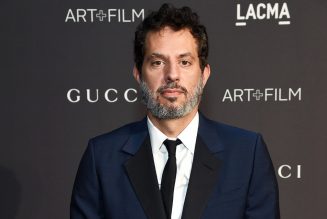News
KRA, lawyers clash over client cash at bank
Tuesday November 21 2023

From left: Law Society of Kenya CEO Florence Muturi, Eric Theuri (LSK President) and Faith Odhiambo (LSK Vice President) addressing journalists.
The Kenya Revenue Authority (KRA) has opened a new battlefront with lawyers as it seeks to collect taxes on interest earned on billions of cash held in client accounts in a far-reaching move that has sent shockwaves in the legal profession.
The Business Daily has obtained correspondence in which the KRA is demanding tax details for a law firm dating back five years, even as the Law Society of Kenya (LSK), a professional body for lawyers, hits back at what it insists is an overreach by the taxman that is under pressure to collect Sh2.57 trillion in taxes this financial year.
In an audit notice to a law firm, the KRA queries the fact that since 2018 the law firm has been on perpetual value added tax (VAT) credit, which means they have paid more to the taxman and therefore have no tax obligation.
“We wish to carry out a verification of your VAT credits as reported in your i-Tax declarations for periods January 2018 to date,” said the KRA in a letter written in September this year.
The records the KRA wants from the firm for completing the verification include purchase invoices, sales invoices, bank statements and monthly Electronic Tax Register (ETR) reports.
“We wish to advise that this verification is limited to the area specified above, KRA reserves the right for further verification and/or audit when new information becomes available,” reads the KRA notice, signed by an official in the Domestic Tax Department.
While the KRA believes some of the law firms have been evading taxes, the lawyers, through the LSK, insist the taxman is on a fishing expedition and is wrongfully going after their members.
Money in client’s account
LSK president Eric Theuri said an advocate keeps two accounts: one for the firm’s earnings and the other for holding the client’s cash.
Mr Theuri said lawyers normally invest the money in the client’s account that earns interest. The interest is given to the client.
“What is happening is the KRA goes into the client’s account, it checks how much an advocate has had and invested on behalf of the client and takes that interest that has been generated as the income for the advocate,” said Mr Theuri.
Once the KRA has assessed the interest as income for the advocate, it levies a withholding tax of 15 percent if the money has been invested in a fixed deposit account, added Mr Theuri.
However, the lawyers argue that they don’t remain with the money and the interest is transmitted to a client.
The aggressive manoeuvres by the taxman, which the lawyers say is a recent phenomenon, has riled the LSK which has asked its more than 20,000 members who feel harassed by the move to complain officially.
“The Council of the Law Society of Kenya is extremely concerned about the rising number of cases and complaints by the public, especially by Advocates, against the KRA in relation to arbitrary tax assessments and the failure by KRA to follow due process or laid down procedures under relevant tax laws in the execution of their mandate,” said Florence Muturi, the chief executive officer of the LSK in a notice to members.
“The complaints include auditing and freezing of privileged trust and client accounts, unreasonable demands for confidential and privileged documents and information,” added Ms Muturi.
High net-worth individuals
She asked aggrieved members to formally record and submit their complaints to the Society.
“This will enable us to formally lodge a complaint with the KRA and also formulate appropriate responses to this affront,” she added.
Mr Theuri said that should the KRA not comply, they plan to move to court.
It is a double tragedy for the legal practitioners who recently caved in to pressure and agreed to be appointed as reporting agents in the fight against dirty cash, a move they had earlier fiercely opposed arguing that it would violate the “advocate-client privilege.”
President William Ruto’s government, which has an economic programme with the International Monetary Fund (IMF) is under pressure to reduce the country’s debt vulnerabilities and achieve the requisite debt to Gross Domestic Product (GDP) ratio of 55 percent by 2029.
“This will entail timely implementation of reforms to broaden the domestic tax base and improve tax compliance,” said the IMF in a statement released last week.
Professionals such as lawyers and high net-worth individuals are some of the taxpayers that the National Treasury noted in one of its reports have not been paying their fair share of taxes.









